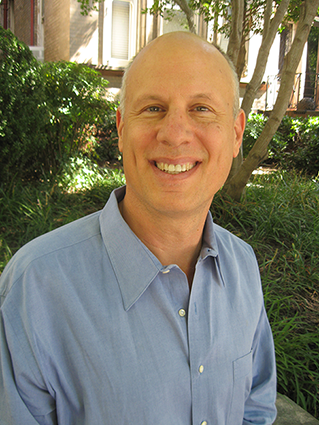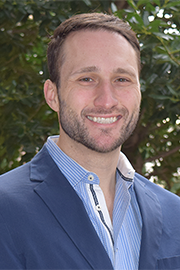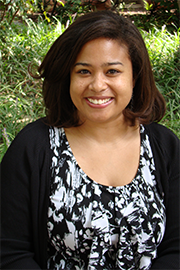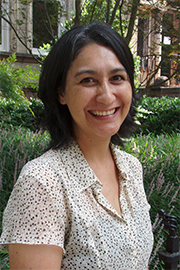Nearly $1M grant expands pro bono mental health services to underserved populations in Richmond
June 28, 2016
 |
Professor of Clinical Psychology Bruce Rybarczyk, Ph.D., has received a nearly $1 million grant to expand a program that provides training to doctoral students studying clinical and counseling psychology and embeds them in Richmond-area primary care clinics to provide pro bono mental and behavioral health services to underserved populations.
The three-year grant from the Health Resources and Services Administration in the U.S. Department of Health and Human Services will expand the VCU Primary Care Psychology Training Network to more than double its capacity and provide more than 15,000 sessions of pro bono services during the next three years.
The program currently trains VCU doctoral students in integrated behavioral health care and embeds them at Health Brigade, formerly named the Fan Free Clinic; the VCU Medical Center Internal Medicine Resident Clinic; the Virginia Coordinated Care Complex Care Clinic; and the Daily Planet.
As part of the new grant, the program will expand to the safety net pediatric clinic at Children’s Hospital of Richmond at VCU, the Hayes E. Willis Family Medicine Clinic at VCU and the Southside Community Health Center of the Daily Planet, which serves Latino adults.
This grant, along with the pilot projects funded by the Richmond Memorial Health Foundation and the Virginia Health Care Foundation, will allow the project to place trainees and faculty supervisors in VCU’s doctoral program in the clinics in Richmond that provide safety net health services to children and Latino families.
“One challenge and frustration since we began our VCU PCPTN was that we had not been able to reach two crucial underserved segments of the Richmond community: children and Latino families,” said Rybarczyk. “Even though we had the faculty expertise and students in those training areas, we simply had not been able to find the right clinics to partner with and resources to make it feasible for faculty to supervise in those settings.”
Richmond has a sizable population of lower-income and minority communities who are underserved in access to mental health services, Rybarczyk said.
Transportation and stigma barriers keep these communities from seeking services, he said. And many of these individuals do not have severe enough problems to qualify for public mental health services, or they have behavioral problems best treated in a medical setting in coordination with their medical providers.
“Integrated primary care is an ideal setting for filling these gaps in available services for these communities,” Rybarczyk said. “It serves as a ‘one-stop shop’ where they can get coordinated, holistic care for a wide range of health problems, including depression, anxiety, stress management, weight loss, substance abuse, smoking cessation, and behavioral methods for managing chronic pain.”
The services provided by the project are intended to serve as a complement to specialty mental health clinics, where there is often a waiting list for access to care.
“By employing the efficiency of integrated care and brief, timely, problem-focused behavioral interventions, our services are able to meet the behavioral health needs of a much larger population of patients than is possible in specialty mental health clinics,” Rybarczyk said.
Rybarczyk began embedding supervised doctoral trainees from the clinical and counseling psychology doctoral programs in Richmond-area safety net primary care clinics in 2008. Since then, the trainees have delivered more than 10,000 sessions of pro bono behavioral care to underserved individuals in the region.
The VCU Primary Care Psychology Training Network – one of the largest programs of its kind in the country – has trained more than 85 doctoral students in recent years.
Trainees, who are properly supervised by licensed and experienced clinicians, are able to provide first-rate, cutting-edge services at a low cost. The project trains roughly 20 students per year.
“[Our] model provides a lot of pro bono care to our community members while keeping the costs very affordable,” Rybarczyk said. “Additionally, we are training clinicians in integrated care in low-income communities, where there are tremendous employment opportunities and the job satisfaction for psychologists is also very high. Working on a care team, with other professionals, providing fast-paced consultation and treatment, in contrast to being in a traditional practice where you see a much smaller number of patients in a private office, is a very rewarding and exciting career path.”
As part of the new grant, the project will be able to recruit more bilingual applicants and better serve the Latino population.
“This year alone, based on our pilot work at the Hayes E. Willis Health Center, which serves many Latino children and their parents, we were able to recruit two bilingual students into our training program,” Rybarczyk said. “We believe many more will follow and will help fill the shortage of bilingual providers that will be fill permanent jobs in Richmond in the long term.”
The need for integrating behavioral health into primary care settings is crucial, Rybarczyk said.
“It has been identified as a key variable in reducing health care costs in this country and some of our early research has demonstrated that our patients use fewer expensive medical services, including inpatient hospitalizations, when they receive brief interventions for their behavioral health concerns,” he said.
“So this is really a win-win for the individual and society and thankfully a vision for higher levels of integrated care nationally has been built into the payments models that are being phased in as part of the Affordable Care Act and fits squarely into the universally agreed upon triple aim of health care reform: providing the best care, at the lowest cost, for the whole population,” he said.
Other Department of Psychology faculty contributing their expertise to the PCPTN in behavioral health for underserved communities are Drs. Paul Perrin, Heather Jones and Rosalie Corona. They are also funded by the project and helped write the proposal.
 |
 |
 |
| Paul Perrin, Ph.D. | Heather Jones, Ph.D. | Rosalie Corona, Ph.D. |